Undergraduate Programs
Our undergraduate degree opportunities are designed to meet the needs of today’s students.
Graduate Programs
Advanced degree opportunities were created with working professionals in mind.
Opportunities Abound with Us
You Want to Teach. You Want to Learn.
Take the Next Step in Your Education Career
Initial Bachelor's Programs for Aspiring Teachers
Master's Degrees and Graduate Certificates here for Teaching Professionals
MA in Education and Innovation (Online)
MA in Reading/Graduate Certificate in Dyslexia and the Science of Reading (Online)
GCRT in Creativity and Innovation
GCRT in Online Teaching and Learning
GCRT in Sustainability and Social Equity Studies
Online EDD for Working Professionals
Individual Attention
1-to-11 average faculty-to-student ratio.
Personal Successes
Our programs are designed to give you real results, right away.
Flexible Learning
Take classes anywhere in the world with our online and global campuses.

SOE Blog

Find career-specific resources, the latest on faculty research, alumni stories, instructional topics and community partnerships and initiatives on the School of Education blog.
Choose Webster for Teacher Education
Teaching Philosophy
Throughout the coursework, students in our teacher preparation programs (BA and MAT), acquire knowledge about software programs, and develop skills to design lessons and deliver content, collaborate and communicate with each other seamlessly in person and online.
Tools and Technologies
Webster’ teacher preparation programs have been using features, functions and data analytics from educational software programs such as Video-Enhanced Observation (VEO) and Mursion, a virtual teaching simulation, to document teacher’s classroom presence and to collaborate in a community of critical friends for their teaching professions.
Recognized for Quality
Webster University's Department of Teacher Education was awarded the 2022 Frank Murray Award from the Council for the Accreditation of Educator Preparation (CAEP), and is the only school in the state of Missouri to receive this award.
Teaching Philosophy
Our teacher preparation programs provide all first-year students with computers for a small fee when they enroll in the program. The laptops come with a stylus, and are preloaded with Microsoft Office 365 Suite and media-making software programs, such as Adobe Acrobat Pro DC and Adobe Premier Rush. Throughout the coursework, students in our teacher preparation programs (BA and MAT), acquire knowledge about the software programs, and develop skills to design lessons and deliver content, collaborate and communicate with each other seamlessly in person and online.
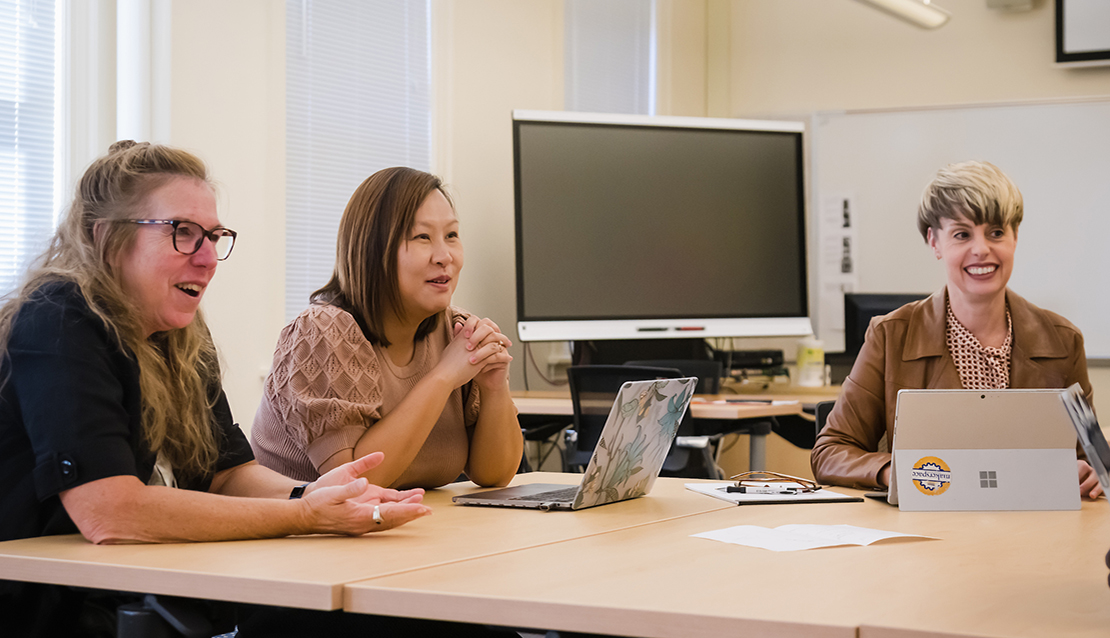
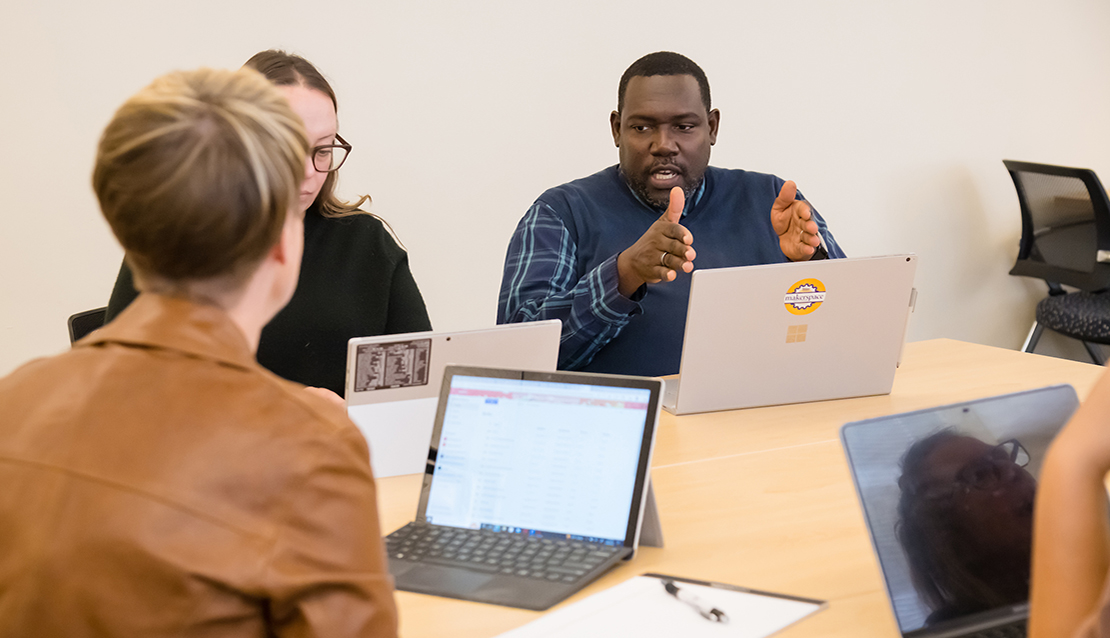
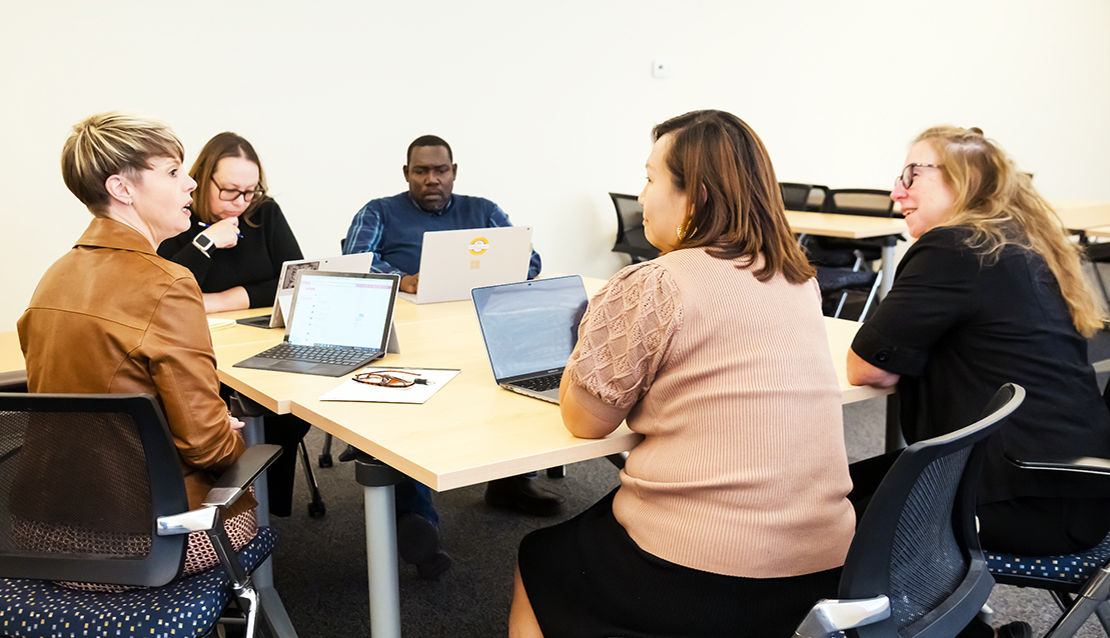
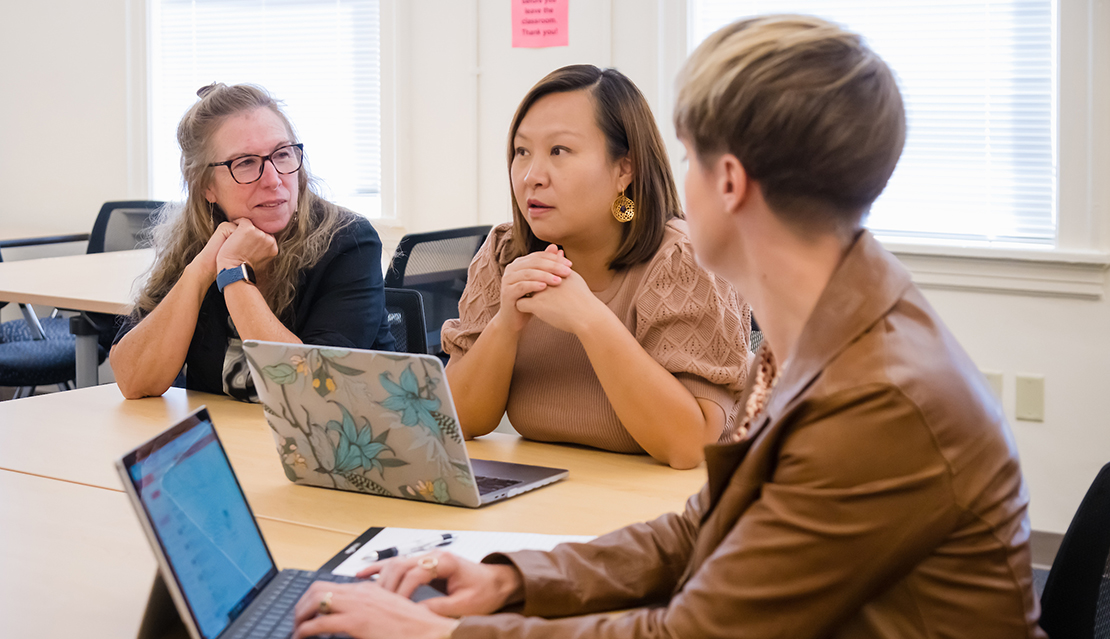
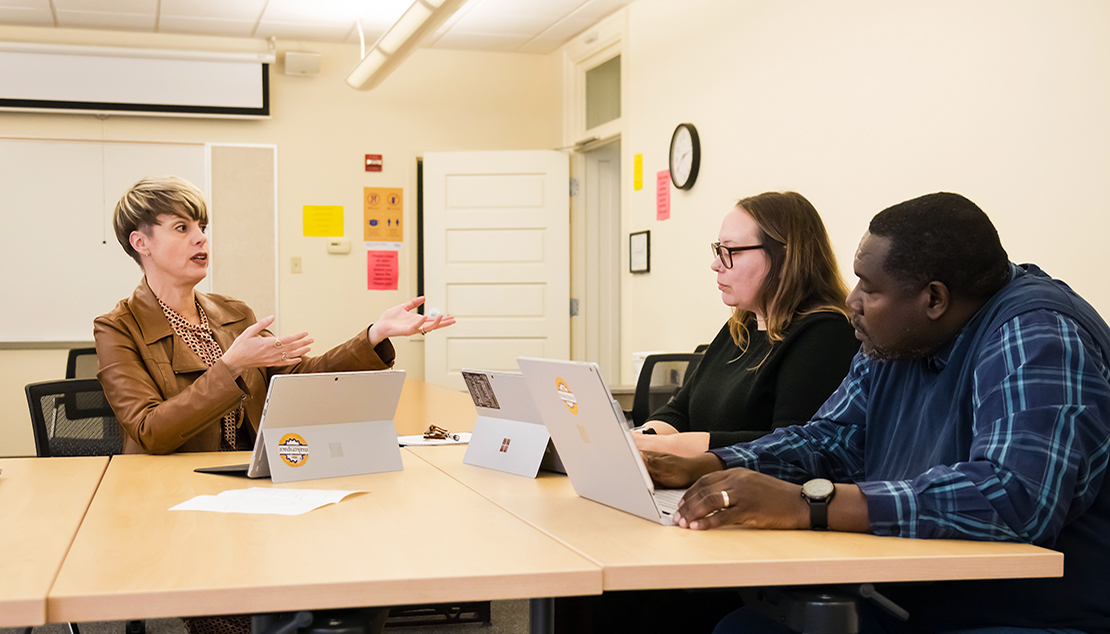
Programs Across the Curriculum
Webster’ teacher preparation programs have been using features, functions and data analytics from educational software programs such as VEO (Video-Enhanced Observation) and Mursion, a virtual teaching simulation to document teacher’s classroom presence and to collaborate in a community of critical friends for their teaching professions. These technologies are used in a micro-teaching lesson study model facilitated by a University instructor working with small groups of teacher candidates. This forms a trusting "community of practice" due to an interactive and ongoing exchange of information and feedback among group members.
VEO is a software that allows video footage to be uploaded and examined systematically using “tag sets” that are built around various teaching behaviors to be examined. A tag session yields data about the demonstration (or lack thereof) of various tags in the tag set, and allows an individual to pinpoint specific teaching behaviors to improve.
Mursion is a simulation software that allows teacher candidates to participate in various teaching simulations in a virtual classroom with a virtual group of student avatars being “driven” by a trained simulation specialist. Small group simulations allow for a more focused experience in the simulator for an individual student. Consequently, a trusting relationship is built among teacher candidates as a cohort with the help of Webster University field experience program supervisors who are appointed to work closely with these teachers in training. This trust is established due to an interactive and ongoing exchange of information among members of this teaching community, providing a shared experience for their teaching practices.
Transcript
[Music]
Text on screen: Webster University
[Various photos of Webster University’s campus in geometric shaped frames.]
Text on screen: Mursion Education Simulation Program
[A video of the Mursion Simulation Software. A teacher gives a lesson to a group of animated children and receives feedback from peers. An interview shot of Stephanie Mahfood.
Stephanie Mahfood: This software, it’s called Mursion Simulation Software.
Text on screen: STEPHANIE MAHFOOD, Interim Dean of the School of Education
So what Mursion does is allows you — allows our teachers — to teach in the simulation with their peers, their classmates and their professors, their supervisors watching them.
[A close up of a video call with the same teacher lecturing the animated children.]
Michelle Haupt: Between other educators and an education leader you are able to just get really great feedback to improve yourself for next time.
Text on screen: MICHELLE HAUPT, Second Grade Teacher
[An interview shot of Haupt is replaced by more close ups of the Mursion Simulation Software.]
And I did see a big progress from, like, the first time that I did Mursion to the last time.
Mahfood: It allows them to do something that you can never do in a classroom. You can stop, you can say “pause simulation,” “help me out here a little bit,” “what would you do?” “what are my options here?” and talk amongst your friends, then come back and try it again.
Haupt: It’s another way to just practice teaching and teaching strategies and engagement and different ways to interact with the students.
[Various interview shots of Mahfood and Haupt are replaced by a montage of more aspects of the Mursion Simulation Software.]
For me, I was really able to think about what I want my classroom to look like as a teacher and really make sure that I could reflect and look back on things and realize where I want to go as a teacher.
Mahfood: Being able to watch yourself and your practice, analyze it and do it again is essential to becoming a master of this very, very complex craft that we call teaching.
[Outro music and more geometrically framed photos of Webster University campus replaces the last interview shot of Mahfood.]
Text on screen: Webster University
[Music fades and the screen fades to black.]
“Webster is very connected and provides lots of great ways for student involvement and leadership. I already feel like I belong with the way I was welcomed into life at Webster.”
BA in Education with an Emphasis in Secondary Mathematics, '25
2022 Murray Award
For more than 10 years, the Council for the Accreditation of Educator Preparation (CAEP) has accredited Webster University. That means providing a high-quality learning experience isn’t just part of our mission statement — it’s how our faculty and staff prepare their students for success in their future classrooms every day.
Webster University's Department of Teacher Education was awarded the 2022 Frank Murray Award from the Council for the Accreditation of Educator Preparation (CAEP), and is the only school in the state of Missouri to receive this award.
Faculty and Staff Voices on Receiving the Frank Murray Award
Highlights from the School of Education

Webster Doctor of Education Program Presents at AERA 2024
April 24, 2024
In the News - Bell, Blazer, Brown-Kennerly, Morris, Reilly, Smith, Miller-Struttmann, Mahfood, Martin and Nurse Rankings
April 18, 2024
This regular column features links to the most significant stories about Webster University or stories that quote Webster...
Webster University School of Education Supporting Inclusive Education Efforts in Kazakhstan
April 10, 2024
Stephanie Mahfood, interim dean of the School of Education, and the faculty and staff in the School of Education hosted...





